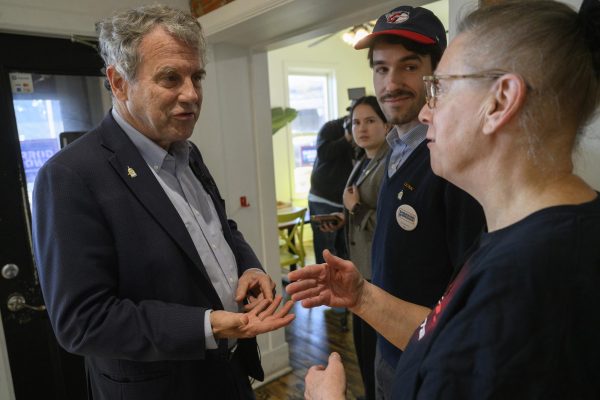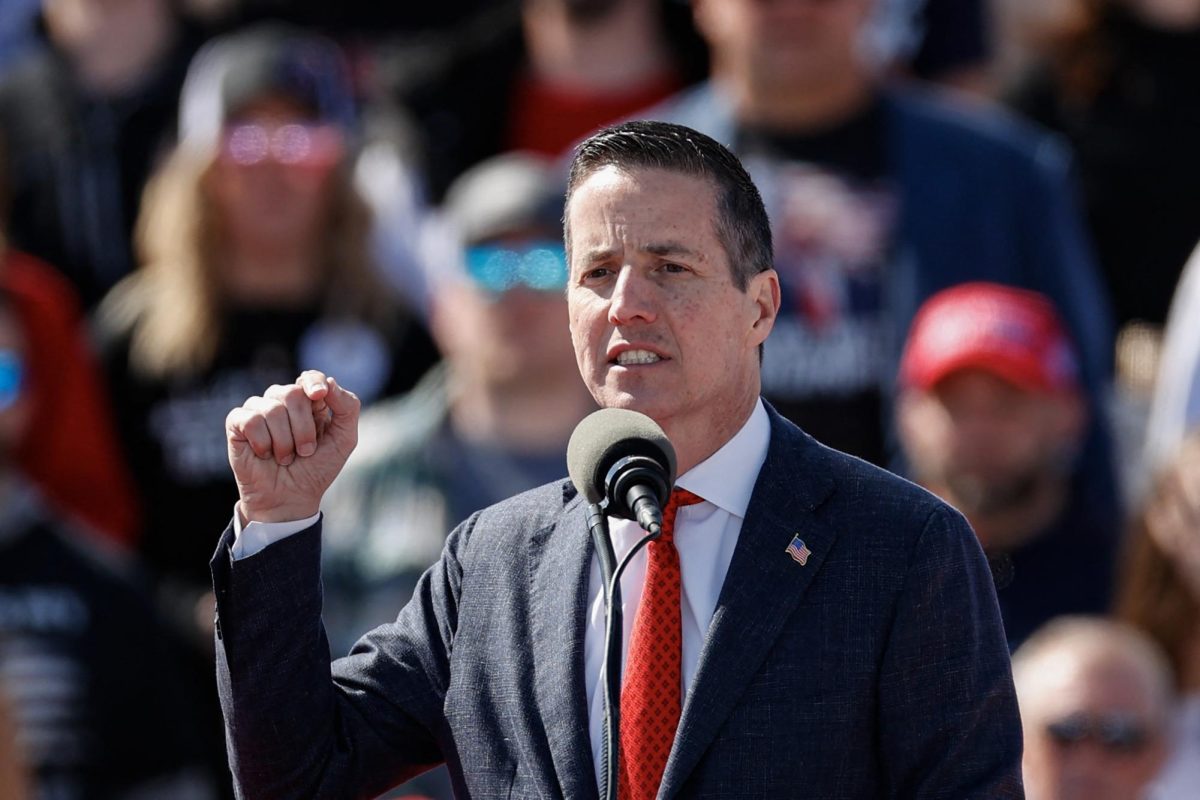The marked shift in Ohio politics was put in the spotlight this Nov. 5 as Senator Sherrod Brown lost his bid for reelection against Cleveland-area business man Mr. Bernie Moreno. Mr. Brown was the last non-judicial Democrat elected statewide in Ohio, cementing Ohio, at least for now, as a red state. Despite this, Brown still ran far ahead of Vice President Kamala Harris in Ohio and was narrowly defeated. Republicans now hold Congress and the Presidency in Washington.
Stark County Republican Chair Mr. Chris Vogt gave his reasons for why Ohioans wanted change with Mr. Moreno’s victory.
“Ohioans wanted a leader who understands the challenges faced by everyday families and has the vision and tenacity to bring tangible solutions,” he said. “Bernie Moreno resonated because he campaigned as an outsider with a business-first mindset, emphasizing job growth, economic stability, and fighting against government overreach. His background as a successful entrepreneur and his ability to connect with voters on pressing issues, like inflation and public safety, showcased his qualifications and commitment to Ohio’s future.”
Although Sen. Brown lost reelection, attorney-at-law and Stark County Democratic Chairman Mr. Dimitrious Pousoulides said all is not lost for Ohio Democrats. He highlights Democratic victories in a number of highly-competitive congressional elections, notably the reelection of Rep. Emilia Sykes [OH-13], who represents North Canton in the House of Representatives.
“Many focused on just the results of the Presidential and Senatorial races, but there were several important Congressional races,” he said. “Ohio returned Joyce Beatty and Shontel Brown to Congress. Ohio also returned Greg Landsman and Marcy Kaptur in two highly competitive races. And here in North Canton, we returned Emilia Sykes to Congress. Emilia has been a tremendous advocate for us here in North Canton and we are very excited that we returned her to Congress. It should be noted that Emilia is the first Democrat to win re-election as a congressional representative for Stark County.”
Republicans have a trifecta [control of The White House, House of Representatives, and Senate] in Washington.
“The Republican trifecta presents an opportunity to focus on key priorities: restoring economic strength, securing our borders, reforming healthcare, and addressing federal spending,” Mr. Vogt said. “The party plans to pass pro-growth policies, reduce regulatory burdens, and ensure that families and businesses thrive. Additionally, election integrity and public safety will be focal points, as well as supporting parental rights in education and expanding school choice.”
Although Sen. Brown will be leaving the Senate in January, he leaves a long legacy.

“Sherrod was unabashedly a champion for the working families of Ohio,” Pousoulides said.
Mr. Moreno did clinch the Ohio Senate seat, but he received hundreds of thousands of fewer votes than President-elect Donald Trump, making the Senate race much closer than Republicans would have preferred. Mr. Vogt ascribed this to Democrats’ focus on healthcare-related issues.
“The tighter margin reflects the evolving dynamics of Ohio’s electorate,” he said. “While Ohio leans Republican, the opposition galvanized their base, focusing heavily on hot-button issues like abortion and healthcare. Additionally, Bernie Moreno’s campaign had to introduce him to voters who might not have been as familiar with him compared to Donald Trump’s established presence. Despite these challenges, Moreno’s message resonated enough to secure a victory, proving Ohioans still lean toward conservative leadership.”
Many people voted for President-elect Trump and Sen. Brown, and Mr. Pousoulides attributes this to Brown’s advocacy for working Ohioans.
“Because many voters acknowledged that, despite partisan differences, Sherrod had a long history of supporting working families in Ohio,” he said.
Bipartisanship is a necessity in America’s deeply divided political landscape, and Mr. Vogt explains how he envisions the Republican Party working in cooperation with the Democrats and by extension unifying the country.
“Unity begins with listening,” he said. “Republicans aim to work with Democrats on common-sense legislation that benefits all Americans — such as infrastructure, veterans’ issues, and lowering prescription drug costs. By focusing on shared priorities and avoiding unnecessary divisiveness, we can build trust across the aisle. Regular dialogue, open forums, and focusing on areas of mutual agreement will lay the groundwork for
bipartisan efforts.”
To get legislation they wish to get passed, they must find common ground.
“Democrats will focus on what is best for working families,” Pousoulides said. “If Republicans want to meet Democrats at this common ground, I am sure the parties will work together for what is best for the American people.”
National unity still remains on the forefront of people’s minds as 2024 comes to a close. Mr. Vogt shares why he thinks the country will become more connected.
“This election is a turning point for the Republican Party and the nation. It’s a reminder that leadership matters, and our focus must always be on delivering results for the American people. By staying true to our principles while finding common ground, we can create a stronger, more united country for generations to come,” he said.
Mr. Pousoulides believes that the parties will work together in areas that both agree will be best for America while contending with four years of Republican control.
“Elections have consequences. In this case, the Republicans are in control of Congress and the Presidency. The way our government works, the majority will set the legislative agenda. On those issues that the Democrats have commonality, I am sure the parties will work together on what is best for America.”



![[from left] Associate Principal Mr. Mike Bluey, Principal Mr. Henry Householder, Associate Principal Mrs. Ashley Duff and Associate Principal Mr. Robert White are the Hoover High School administration for the 2025-2026 school year.](https://thevikingviews.com/wp-content/uploads/2025/10/IMG_7174-1200x800.jpg)

